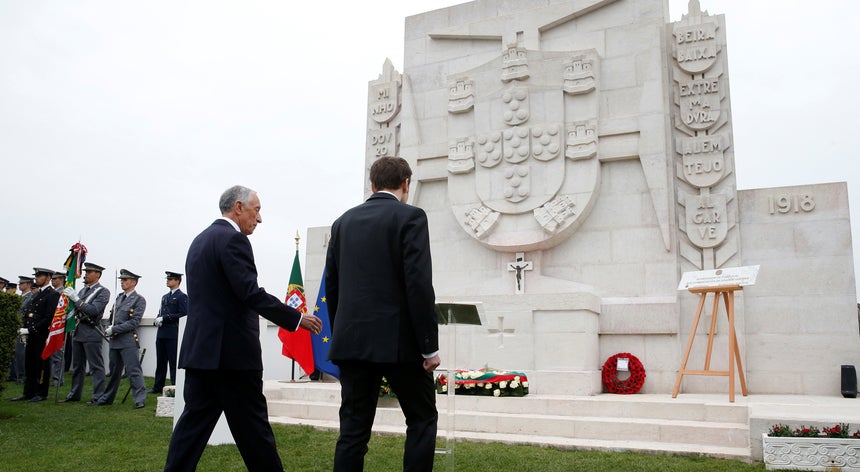 One hundred years ago, on April 9, 1918, in the valley of the River Lys in northern France, the second division of the Portuguese Expeditionary Corps was fighting.
One hundred years ago, on April 9, 1918, in the valley of the River Lys in northern France, the second division of the Portuguese Expeditionary Corps was fighting. A massive enemy bombardment had cut the supply lines and communications, completely destroying defensive fortifications. This was ‘Portuguese Verdun’ of the First World War.
The British First Army was a weakened force and included several worn-out formations that had been posted to a "quiet sector". This included two divisions of the Portuguese Expeditionary Corps, which were undermanned, lacked almost half of their officers, had very low morale and were due to be replaced on the day of the German attack. Portugal had joined the conflict following the declaration of war on Portugal by Germany in March 1916.
The German plan was to break through the First Army, push the Second Army aside to the north, and drive west to the English Channel, cutting off British forces in France from their supply line which ran through the Channel ports of Calais, Dunkirk and Boulogne.
In the ensuing battle at La Lys, the trenches were defended, resulting in hand-to-hand fighting against four German divisions with the Portuguese succumbing to the overwhelming attack.
Portugal suffered a heavy defeat with hundreds of soldiers losing their lives, thousands taken prisoners, later dying of their wounds and of sickness.
La Lys was the most dramatic moment of Portugal's participation in the Great War. As part of the overall effort, the government had sent 100,000 soldiers to Africa, in defence of Angola and Mozambique and to northern Europe. An estimated 8,000 men were killed in the trenches of Flanders and on the battlefields of Africa. (*See comment by Peter Booker)
In four years of bloodshed between 1914 and 1918, 65 million combatants were mobilized, of which ten million died and 29 million were wounded, missing or captured.
Europe re-emerged and dedicated itself to building a union of nations committed to promoting peace, strengthening solidarity, respecting the identity of each nation and guaranteeing freedom and justice.
In commemoration of the sacrifice made by Portugal’s armed forces, the French and Portuguese Presidents met in northern France today to commemorate a battle that killed, wounded or resulted in the capture of 7,400 Portuguese soldiers.
French PM, Emmanuel Macron and Portugal's President, Marcelo Rebelo de Sousa, jointly commemorated the centenary of the Battle of La Lys on Monday April 9th as hundreds of people gathered at the military cemetery of Richebourg (Pas-de-Calais).
More than 2,000 guests later attended a ceremony where a commemorative plaque was unveiled in tribute to the fallen.
"This is a place that touches the entire history of Portugal," said Portuguese MP, Carlos Gonçalves, adding, "This is a moment of memory very important for our two countries, because there are 1.3 million French people of Portuguese origin."
Portugal's President said in his speech, ""I also want to say a word to all the Portuguese women and all the Portuguese who were born in France or came here hoping to build a future of prosperity that they did not find in our homeland. Your presence in France has contributed to the greatness of France, but above all, it has contributed to the prestige of Portugal because where each one of you is, there is a little of Portugal."
























